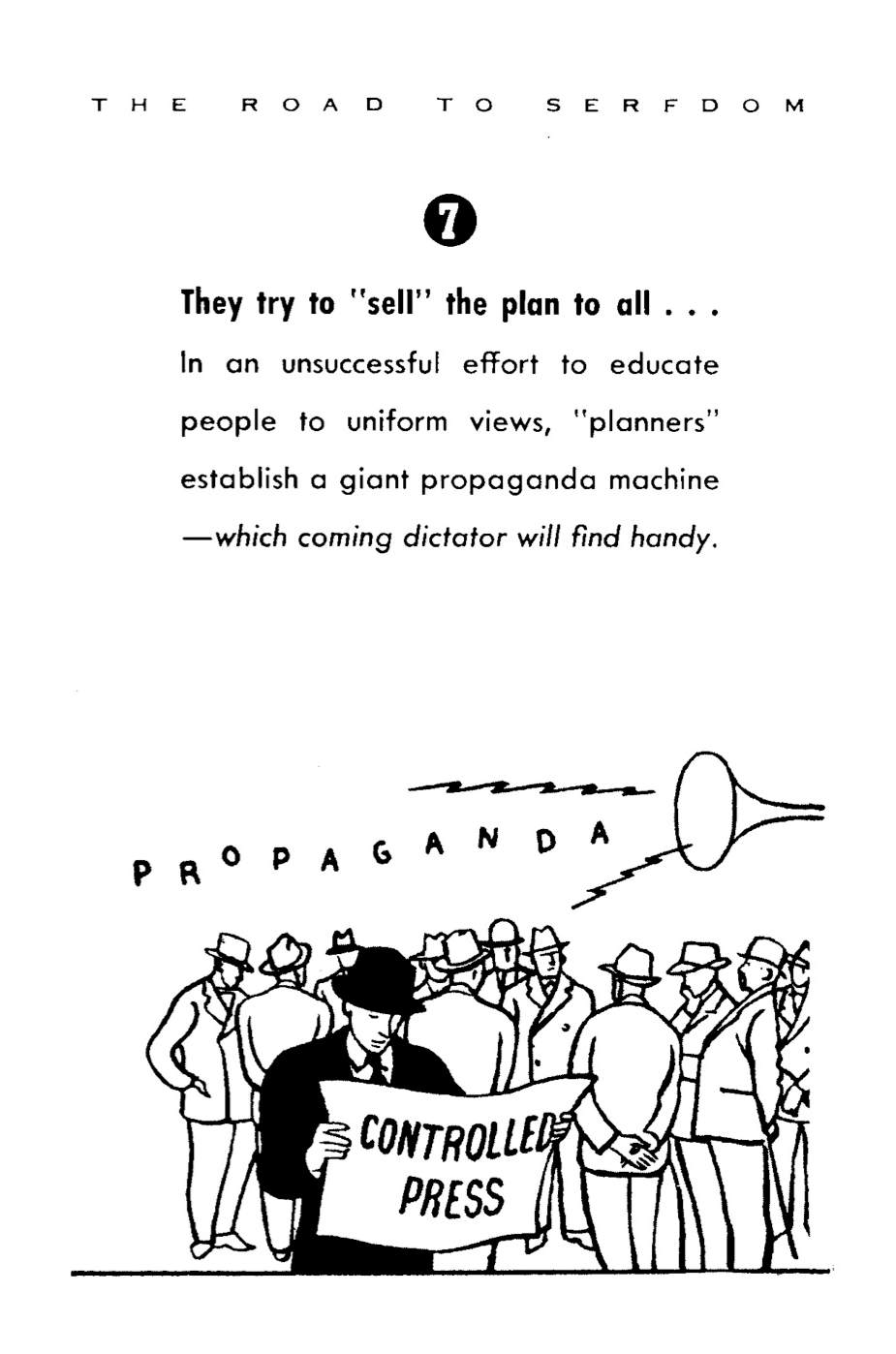The Nobel laureate Friedrich Hayek’s book, The Road to Serfdom remains the defining 20th-century statement of a certain kind of liberalism. Its philosophical arguments against central planning and centralisation are echoed by modern liberals even today. Yet, shifts in ideological context mean that the set of issues Hayek prioritises no longer remain as obviously relevant. Furthermore, the academic and public understanding of liberalism is arguably no longer as grounded as the free-market absolutism that he espouses.
Liberalism today has a much greater emphasis on market failures and social safety nets.
To frame Hayek in the modern political context, one has to bring up John Maynard Keynes. The most consequential impact of the wave of neoliberal thinkers that he heralded was the broad critique of the prevalent Keynesian thinking in Economics. However, the attitudinal shift towards minimal government involvement that his critique resulted in has been much debated. Yet, the embrace of large stimulus packages as a response to the current crisis across much of the world probably reflects an acknowledgment of the role that the state must play in managing periods of economic crisis.
Another of his views that most modern liberals don’t find tasteful is his defense of the market distribution of income. I don’t want to misrepresent his views; he did believe in universal basic income but he did not articulate that particular belief often. Fundamentally, he thought, the market’s distribution of income is the closest mechanism we have to sustain a meritocracy. In the absence of objective moral claims on resources, he argued that it was best to let the market do its thing and, thus, the government should not intervene with the intention of redistribution.
Well, you don’t need to be a Socialist to find this argument rather flawed in light of the vast inequalities of wealth, caste, and religion as well as less-than-stellar social mobility. One of the most resonant criticisms of Modern Capitalism is the inequality it creates; while that does not necessarily imply a radical change of the economic system; it does, in fact, result in a problem that its proponents should not dismiss.
Why the meritocratic argument doesn’t satisfy most of us is simple: even if you do believe that division of resources as per merit is just; the current system does not exist in a vacuum where everyone has equal opportunities, people with different socio-economic and cultural backgrounds clearly don’t have an equal shot when it comes to most things and basing your moral framework on the belief that the outcome is inherently fair doesn’t conform with what we know about how opportunities in the real economy work.
The one argument that I believe he got incredibly wrong is his distrust of central banking. He believed that their lack of in-depth information means that their decisions lead to an artificially created boom-and-bust cycle. To the extent that there is a common coherent complaint regarding modern central banks is that they’ve not intervened adequately. The policies of quantitative easing and cutting interest rates across the developed world were not well received by Hayekian thinkers, who warned of too much intervention. The evidence we do have suggests that these policies have broadly been effective.
However, his skepticism of central banking and national currencies seems to have found an ideological heir in today’s vocal advocates for Bitcoin and other cryptocurrencies, who find the state’s control of money unappetising. He even wrote a book in 1976 called The Denationalization of Money arguing for competitively issued private currency. The market-determined price of cryptocurrencies aligns with Hayek’s vision where the free market acts as a constant referendum on the value of goods and services within an economy.
His core argument for prices as signalling and how he links it to his ideas about unplanned order is quite brilliant. He takes issue with one of the main premises of the socialists of his time: that economic systems are designed and for particular reasons. Many of his left-leaning contemporaries attributed personal motivations to the way the incredibly complex economic structures are designed: to facilitate the exploitation of the proletariat or to deliver workers’ empowerment.
He questioned whether this was really the case and thought that the relevant analogy was to languages: complex human-made things that emerge spontaneously through a process of mutual adjustment and human action despite no singular motivation driving its creation. Similar forces explained why the modern market economy had evolved the way it did. He links these ideas about spontaneous order to prices.

Prices are weird, in a way that we intuitively understand but don’t often think about the implications. In all economic interactions, both parties probably lack most information about the market environment as is assumed in classical economics yet they broadly act rationally.
How? Prices tell you a lot of information in a single figure: whether there was a major production delay in key oil refineries, how the political outlook towards your industry has changed recently, how many players are there in the market. Much of that information is absorbed in the price and communicates the relevant facts to the individual market actors who do not need to know all of that. This is really how, despite all of us not being omniscient beings, markets seem to work naturally. This signalling function of prices is why state interventions to impose price controls and shift prices are harmful: prices just signal the value and information underlying the market conditions, shifting prices simply distorts the signalling, not the underlying market conditions, leading to more costs from inaccurate signalling.
The idea that any individual or institution can never possess enough information about the overall economy to make decisions is why we should resist central planning: markets naturally assume the incomplete information available to each person and don’t run into the same problems.
At the end of the day, what I find most questionable about the principal argument he makes is that it functions just like a Slippery Slope argument: central planning inevitably leads to state repression and any policy that advocates for greater government involvement in the free market distorts price signals in a way that hampers the functioning of the market and leads to greater centralisation.
From those two lines of thought, he comes to the conclusion that most policies that increase the size of the government are by definition going to be counterproductive and that large welfare states pave the way for Soviet-style socialism.
Do I find his argument about the incompatibility of Liberalism and Statism appealing? Yes, it is well-argued.

Does it work as an argument against higher social spending and greater union membership? No, and the empirical research on much of this is not kind to his reasoning. The idea that large welfare states would ultimately bring about the same outcomes as central planning models seems to be completely refuted by the Nordic model’s success as a market economy with a generous safety net. He was proven wrong on a number of predictions. The central arguments of his book would predict a swing towards Right-Wing Totalitarianism in Eastern Europe in the 80s and 90s which definitely did not pan out.
Ultimately, his influence on modern economic thinking is undeniable but it is important to place his ideas in the relevant socio-political context and be cognizant of where his reasoning falls flat.
Deepseek: A journey from Hedge Funds to AI
Introduction: In this busy and bustling day to day life of ours managing our Finances…
Beyond Numbers: The Human Cost of Infosys’ Layoffs and the Global Normalization of Workforce Reduction
A Familiar Script: Infosys and the Corporate Playbook of Disposable Labor: On February 7, 2025,…
Understanding Tariffs and Their Impact on India
What Are Tariffs? Tariffs are taxes governments levy on foreign imports to make the goods more…
The Economics of Player Transfers in Football
Introduction: In the world of football player transfers are more than just transactions, they are…
Session 5
Session 5- Unraveling Equity Derivatives: Insights from the Fifth Development Session The Fifth Development Session…
An Attempt To Deteriorate The Creditworthiness of Indian Entities
Introduction: The growth story of India in almost every sector is not alien to the…








